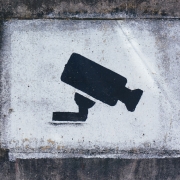 https://dsa-observatory.eu/wp-content/uploads/2025/07/Conference-grid-image.png
1024
1536
admin
http://dsa-observatory.eu/wp-content/uploads/2021/04/DSAO-header-logo-300x257.png
admin2025-07-09 15:06:532026-01-18 20:58:27Call for Papers: The DSA and Platform Regulation Conference 2026
https://dsa-observatory.eu/wp-content/uploads/2025/07/Conference-grid-image.png
1024
1536
admin
http://dsa-observatory.eu/wp-content/uploads/2021/04/DSAO-header-logo-300x257.png
admin2025-07-09 15:06:532026-01-18 20:58:27Call for Papers: The DSA and Platform Regulation Conference 2026The Digital Services Act (DSA) Observatory
The “Digital Services Act (DSA) Observatory” is a project run by the Institute for Information Law (IViR) at the University of Amsterdam, which acts as a hub of expertise on the new EU Digital Services Act Regulation.
The DSA Observatory provides independent scholarly input and facilitates discussions regarding this important legislation, its implementation and enforcement. In particular, the DSA Observatory focuses on fundamental rights and democratic values as a means to confront platform power.
Launched in January 2021, the Observatory has followed the DSA political process closely. It engages with different stakeholders and brings together a broad network of platform regulation experts from academia, civil society, and government.
The project generates regular analysis on the DSA and relevant developments, including blog posts, policy reports, academic articles, and events including expert workshops, panels and conferences.
About The Digital Services Act (DSA) Observatory
The DSA Observatory
The Digital Services Act (DSA) Observatory is a new project run by the Institute for Information Law (IViR) at the University of Amsterdam, which kicked-off in January 2021. The DSA Observatory acts as a hub of expertise with respect to the “Digital Services Act” package presented by the European Commission in December 2020.
Project team
The core project team for the DSA Observatory is composed of prof. Joris van Hoboken, Paddy Leerssen, John Albert, Magdalena Jóźwiak, dr. Ronan Fahy, prof. Natali Helberger, and dr. João Pedro Quintais
Funding and collaboration with the Digital Legal Lab
The DSA Observatory is part of the “Digital Transformations of Decision-Making” research initiative of the Amsterdam Law School and contributes to the activities of the Digital Legal Lab, an interuniversity research centre on law and digital technologies run by a research network between four Dutch universities: Tilburg University, the University of Amsterdam, Radboud University Nijmegen and Maastricht University. This joint research initiative, the Digital Legal Studies Sector Plan for legal research is funded by the Dutch Ministry of Education, Culture and Science (OCW). The DSA Observatory has received funding from the Open Society Foundations and from the Civitates initiative (“Healthy Digital Public Sphere” programme) and the DSA Research Network (a collaboration with the Alexander von Humboldt Institute for Internet and Society and the Hans-Bredow-Institut), funded by Stiftung Mercator.
Where we focus on …
Europe / Brussels
Lorem ipsum dolor sit amet, consectetuer adipiscing elit. Aenean commodo ligula eget dolor. Aenean massa. …
Justice
Aenean leo ligula, porttitor eu, consequat vitae, eleifend ac, enim. Aliquam lorem ante, dapibus in, viverra quis, feugiat a, tellus. Phasellus viverra nulla ut metus varius laoreet. Quisque rutrum. Aenean imperdiet. …
Privacy
Cras dapibus. Vivamus elementum semper nisi. Aenean vulputate eleifend tellus. Aenean leo ligula, porttitor eu, consequat vitae, eleifend ac, enim. Aliquam lorem ante, dapibus in, viverra quis, feugiat a, tellus. …
Politics
Cras dapibus. Vivamus elementum semper nisi. Aenean vulputate eleifend tellus. Aenean leo ligula, porttitor eu, consequat vitae, eleifend ac, enim. Aliquam lorem ante, dapibus in, viverra quis, feugiat a, tellus. …
Research
Cras dapibus. Vivamus elementum semper nisi. Aenean vulputate eleifend tellus. Aenean leo ligula, porttitor eu, consequat vitae, eleifend ac, enim. Aliquam lorem ante, dapibus in, viverra quis, feugiat a, tellus. …
People
Cras dapibus. Vivamus elementum semper nisi. Aenean vulputate eleifend tellus. Aenean leo ligula, porttitor eu, consequat vitae, eleifend ac, enim. Aliquam lorem ante, dapibus in, viverra quis, feugiat a, tellus. …
Contact
The DSA Observatory team can be reached by email at:
dsaobservatory-ivir@uva.nl

















The Missing Metrics in DSA Content Moderation Transparency
/in AnalysisBy Max Davy, Oxford Internet Institute
The Digital Services Act makes platform transparency reporting mandatory and standardised, but the metrics it requires still fall short of what is needed for real accountability. Counts of removals and appeals alone cannot tell us whether content moderation systems are accurate, proportionate, or effective, making the absence of evaluation metrics such as precision and recall increasingly difficult to justify under the DSA’s risk-based logic. While these metrics are unlikely to surface in baseline transparency reports under Articles 15 and 24, the post argues they may yet emerge through heightened scrutiny of the largest online platforms and search engines (VLOPSEs), as regulatory expectations take shape through enforcement, systemic risk reporting, audits, and related obligations.
What are DSA audits doing for systemic risk enforcement? The case of X
/in AnalysisBy John Albert, DSA Observatory
Of the nineteen service providers initially designated as VLOPSEs under the DSA, X’s first compliance audit stands apart. Its auditor, FTI Consulting, broke from industry peers by offering relatively critical opinions — including findings that were unfavourable to the platform on obligations under active Commission investigation. How did X respond? Rather than work toward implementing the auditor’s recommendations, X simply reshuffled the deck: it went out and hired a new auditor (BDO). The move raises a deeper question about what the DSA audit regime is actually doing — and how seriously the Commission treats audits as part of systemic-risk enforcement, which, in principle, relies on auditors to provide an additional, independent layer of scrutiny.
Waiting for the DSA’s Big Enforcement Moment
/in AnalysisBy Magdalena Jóźwiak, DSA Observatory (University of Amsterdam) This blog post explores the issue of DSA enforcement by the European Commission, focusing on the law’s systemic risk management provisions. It first briefly sketches the Commission’s role in regulatory oversight of the systemic risk framework and then sums up enforcement efforts to date, considering also […]